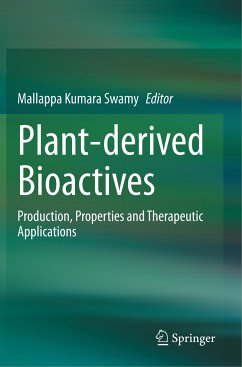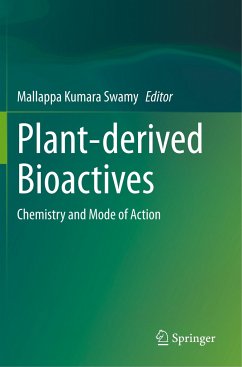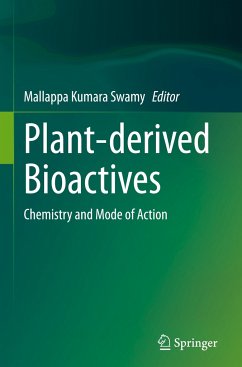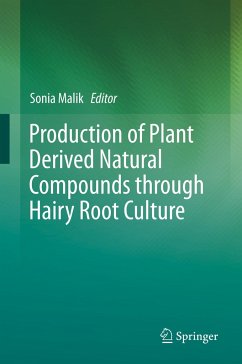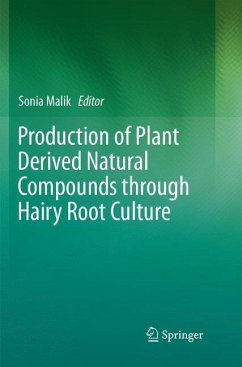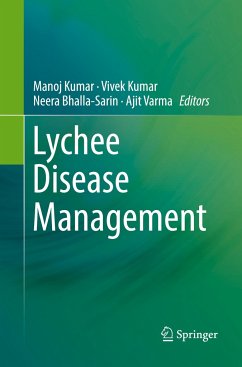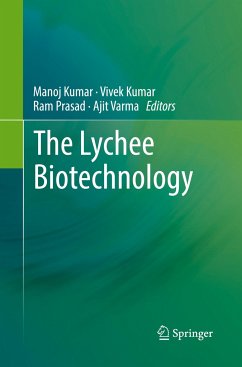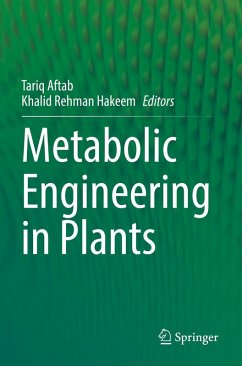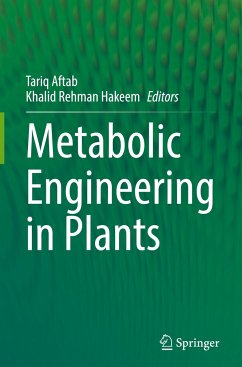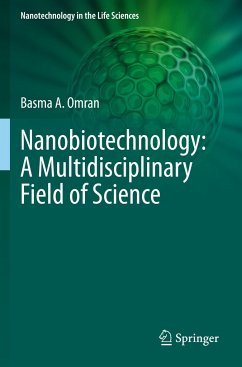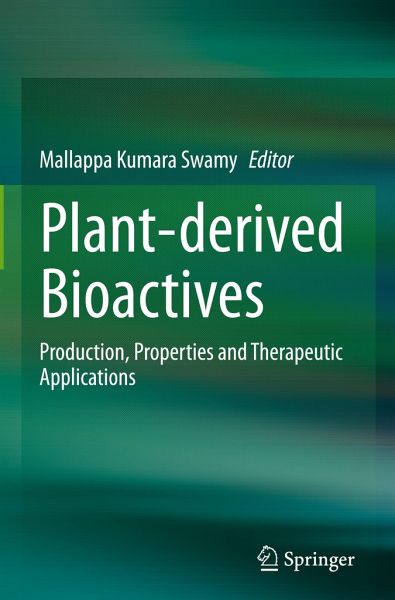
Plant-derived Bioactives
Production, Properties and Therapeutic Applications
Herausgegeben: Swamy, Mallappa Kumara

PAYBACK Punkte
95 °P sammeln!
Plants produce a vast number of bioactive compounds with different chemical scaffolds, which modulate a diverse range of molecular targets and are used as drugs for treating numerous diseases. Most present-day medicines are derived either from plant compounds or their derivatives, and plant compounds continue to offer limitless reserves for the discovery of new medicines. While different classes of plant compounds, like phenolics, flavonoids, saponins and alkaloids, and their potential pharmacological applications are currently being explored, their curative mechanisms are yet to be understood...
Plants produce a vast number of bioactive compounds with different chemical scaffolds, which modulate a diverse range of molecular targets and are used as drugs for treating numerous diseases. Most present-day medicines are derived either from plant compounds or their derivatives, and plant compounds continue to offer limitless reserves for the discovery of new medicines. While different classes of plant compounds, like phenolics, flavonoids, saponins and alkaloids, and their potential pharmacological applications are currently being explored, their curative mechanisms are yet to be understood in detail.
This book is divided into 2 volumes and offers detailed information on plant-derived bioactive compounds, including recent research findings. Volume 1, Plant-derived Bioactives: Chemistry and Mode of Action, discusses the chemistry of highly valued plant bioactive compounds and their mode of actions at the molecular level. Volume 2, Plant-derived Bioactives: Production, Properties and Therapeutic Applications, explores the sources, biosynthesis, production, biological properties and therapeutic applications of plant bioactives.
Given their scope, these books are valuable resources for members of the scientific community wishing to further explore various medicinal plants and the therapeutic applications of their bioactive compounds. They appeal to scholars, teachers and scientists involved in plant product research, and facilitate the development of innovative new drugs.
This book is divided into 2 volumes and offers detailed information on plant-derived bioactive compounds, including recent research findings. Volume 1, Plant-derived Bioactives: Chemistry and Mode of Action, discusses the chemistry of highly valued plant bioactive compounds and their mode of actions at the molecular level. Volume 2, Plant-derived Bioactives: Production, Properties and Therapeutic Applications, explores the sources, biosynthesis, production, biological properties and therapeutic applications of plant bioactives.
Given their scope, these books are valuable resources for members of the scientific community wishing to further explore various medicinal plants and the therapeutic applications of their bioactive compounds. They appeal to scholars, teachers and scientists involved in plant product research, and facilitate the development of innovative new drugs.



